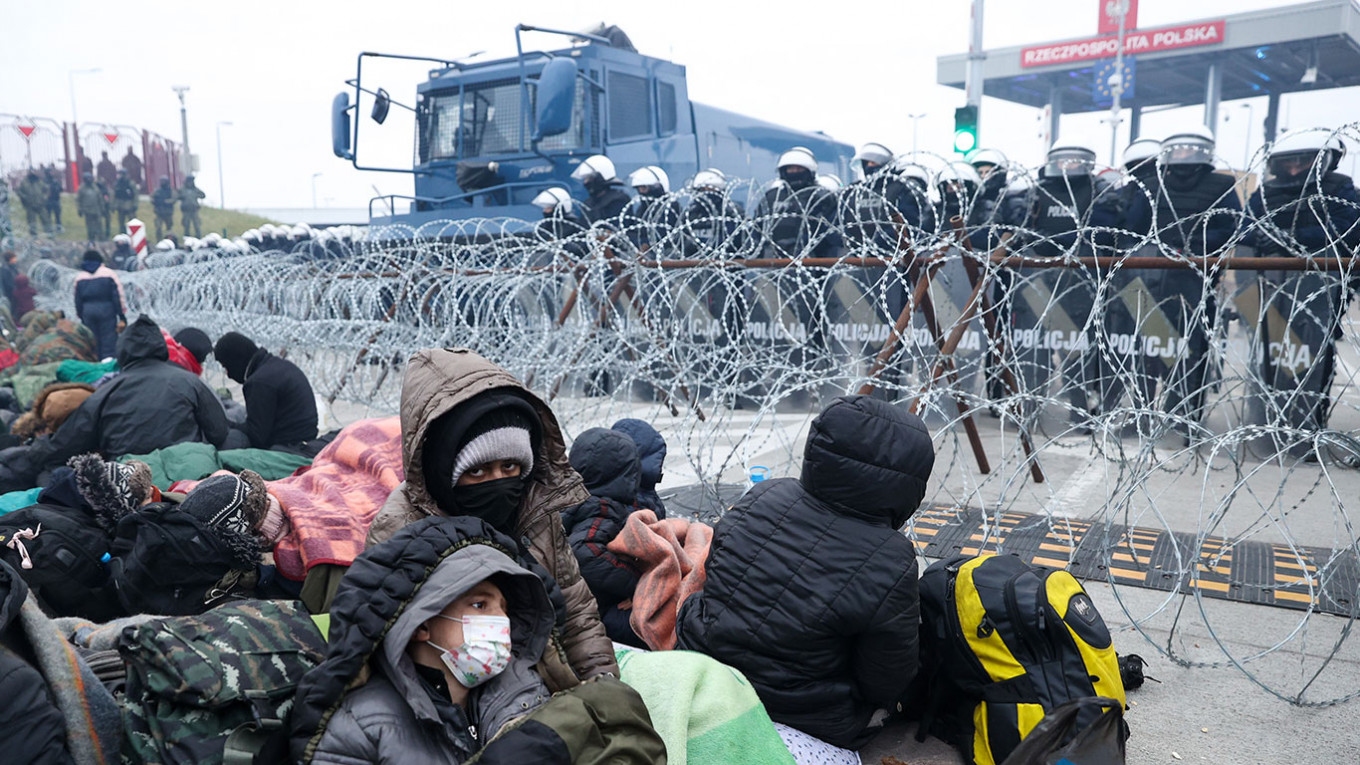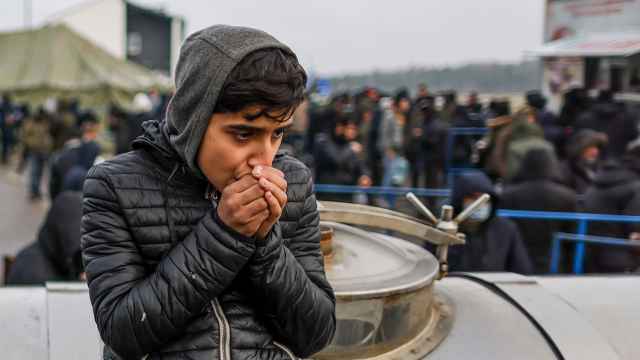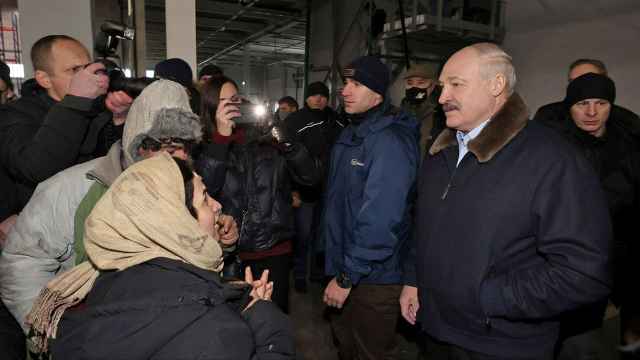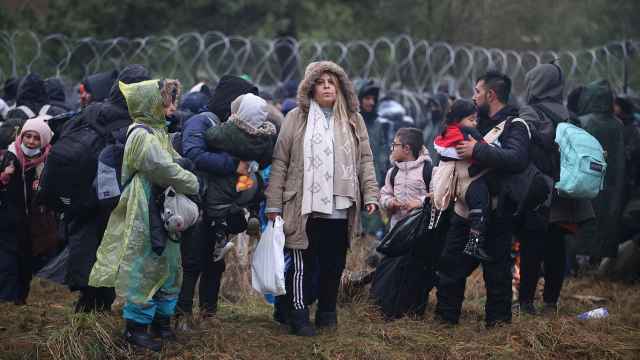Iraqis willing and able to pay thousands of dollars for would-be "package deals" to the EU via Belarus have a variety of itineraries to choose from.
As thousands of migrants remain stuck in the cold at the razor wire fence along the Belarus-Poland border, AFP spoke with travel agents and migrants involved.
The EU has accused Belarus, which is backed by Russia, of engineering the crisis and taken steps to stop flights from the Middle East to Minsk — but travel agents in Baghdad say they have found other ways.
"Now everything is going through Russia," a staff member of one travel agency told AFP, asking not to be named.
"A tourist visa for Russia costs $700. Travelers need an invitation and a guarantor. That takes about 10 days to arrange. The flight itself costs $500.
"Once in Russia, traffickers take them secretly overland to the border with Belarus, and that costs another $500."
The costs can add up to almost $2,000 for Iraqis, a huge sum for many in the war-scarred country where the average monthly salary is $300.
Ankara travel 'hub'
For Iraqi Kurds, who make up the majority of migrants bound for Belarus, Dubai, Doha and Ankara offer alternative routes, according to Mera Jassem Bakr, an Iraqi Arab researcher and expert on Kurdish emigration.
They do not even need visas for Qatar if Doha is only a transit point.
As for the Turkish capital, it has turned into "a hub" to acquire visas for Belarus in the migrants' vain efforts to start a new life in the European Union, explained Bakr.
The Kurds hand their passport to travel agents, who send documents to colleagues in Ankara to apply for Belarus visas.
"Around two months ago, the whole package cost $2,500. Now it is something between $3,500 up to $4,000," Bakr said.
Turkey last week banned Iraqis, Yemenis and Syrians from flights to Belarus, while the former Soviet country's carrier Belavia has announced a similar measure on flights from Dubai.
'Exhausted and sick'
Bakr, 28, is one of the thousands of desperate migrants camped on the Belarus side of the border with EU member Poland.
"We're exhausted and sick," said the young man, reached by telephone.
"We got here on a tourist visa a week ago. Because there are no more flights between Baghdad and Minsk, we passed through Dubai.
"Some people paid $3,000, others as much as $25,000 or $30,000, to a travel agent in Baghdad."
The Belarus consulates in Baghdad and the Kurdish regional capital of Arbil closed almost two weeks ago at the request of the Iraqi government, to cut off the flow of visas.
The government ordered a halt to Baghdad-Minsk flights in August, when hundreds of migrants, mostly Iraqis, converged on the Belarus border with Lithuania before the focus turned to Poland.
Western countries accuse Belarusian President Alexander Lukashenko's government of engineering the crisis by encouraging migrants to travel to Belarus and then taking them to the border.
Brussels has moved to sanction Belarusian travel agencies and the state airline.
Baghdad is organizing a "voluntary" repatriation flight on Thursday for its citizens stuck on the border where thousands of Polish security forces have been deployed to keep them out.
Iraq has recorded more than 550 of its citizens who have said they are willing to return, according to foreign ministry spokesman Ahmed al-Sahaf.
A Message from The Moscow Times:
Dear readers,
We are facing unprecedented challenges. Russia's Prosecutor General's Office has designated The Moscow Times as an "undesirable" organization, criminalizing our work and putting our staff at risk of prosecution. This follows our earlier unjust labeling as a "foreign agent."
These actions are direct attempts to silence independent journalism in Russia. The authorities claim our work "discredits the decisions of the Russian leadership." We see things differently: we strive to provide accurate, unbiased reporting on Russia.
We, the journalists of The Moscow Times, refuse to be silenced. But to continue our work, we need your help.
Your support, no matter how small, makes a world of difference. If you can, please support us monthly starting from just $2. It's quick to set up, and every contribution makes a significant impact.
By supporting The Moscow Times, you're defending open, independent journalism in the face of repression. Thank you for standing with us.
Remind me later.






